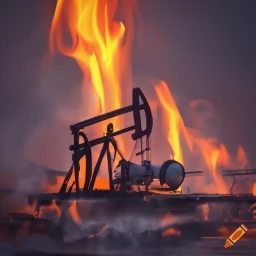
They claim that LNG produces fewer carbon emissions and air pollutants when burned, leading to improved air quality and reduced greenhouse gas emissions.
One of the main reasons why LNG is considered relatively cleaner is because it contains a higher concentration of methane, a potent greenhouse gas, compared to other fossil fuels. When burned, methane releases less carbon dioxide (CO2) per unit of energy produced. This lower carbon intensity makes LNG an attractive option for reducing greenhouse gas emissions, especially in industries and sectors where emissions reduction is a priority.
In addition to its lower carbon intensity, LNG production facilities often incorporate advanced technologies to capture and minimize methane emissions during extraction, processing, and transportation. These technologies help to mitigate the potential environmental impact of LNG by reducing methane leakage, which is a significant contributor to climate change.
However, it is important to recognize that LNG is not without its challenges and potential drawbacks. While the methane content of LNG makes it a cleaner option compared to other fossil fuels, the extraction and transportation processes of LNG can still result in methane leakage. This leakage can contribute to climate change and offset some of the environmental benefits associated with using LNG as an energy source.
Furthermore, the overall environmental impact of LNG depends on various factors. The source of the natural gas used to produce LNG plays a significant role in determining its environmental footprint. For example, if the natural gas is obtained through hydraulic fracturing (fracking), the environmental impact can be higher due to the potential for water pollution and habitat disruption. On the other hand, if the natural gas is sourced from renewable biogas or captured methane emissions from landfills, the environmental benefits of LNG can be more pronounced.
The efficiency of the production process and the infrastructure used for transportation and storage are also critical factors in determining the environmental impact of LNG. Efficient production methods and well-maintained infrastructure can help minimize energy waste and reduce the overall carbon footprint of LNG.
It is essential to consider the environmental benefits of LNG within the context of a broader transition to cleaner energy sources and sustainability. While LNG may offer advantages over other fossil fuels in terms of carbon emissions and air pollutants, it is not a long-term solution to mitigating climate change and reducing dependence on fossil fuels. Renewable energy technologies, such as solar and wind power, are increasingly recognized as more sustainable options for achieving a low-carbon future.
In conclusion, LNG may have certain environmental advantages over other fossil fuels, particularly in terms of lower carbon emissions and air pollutants. However, its overall impact on the environment depends on various factors, including the source of the natural gas, the efficiency of the production process, and the infrastructure used for transportation and storage. Transitioning to cleaner energy sources and implementing sustainable practices remain crucial in addressing climate change and striving for a more environmentally friendly future.
---
Note: If the text above is not clear, the reason is probably that ShowMoor has encrypted it.
Press the ShowMoor -button, join the community and you can - in addition to this - enjoy everything the service has to offer - for a small subscription fee.